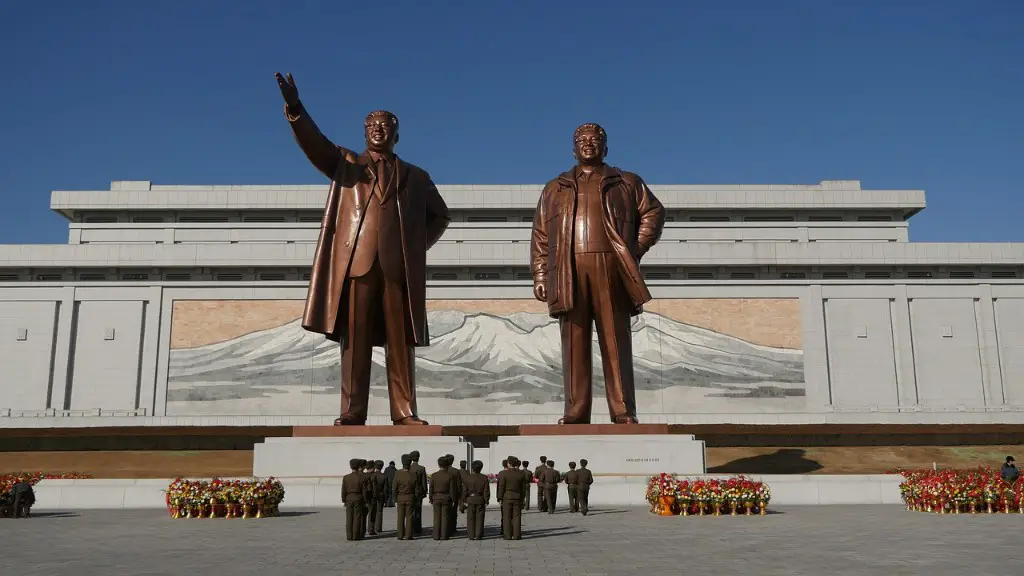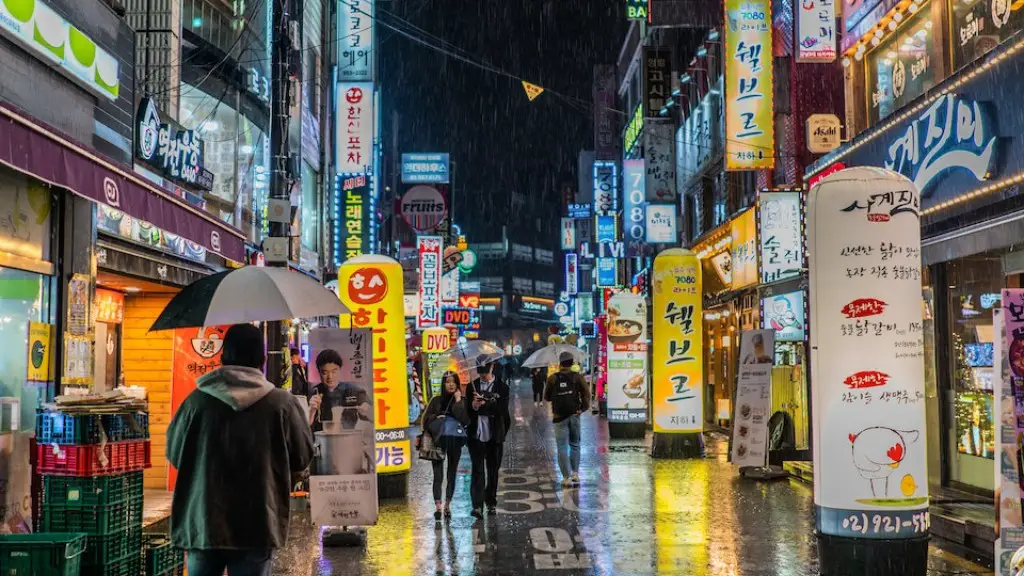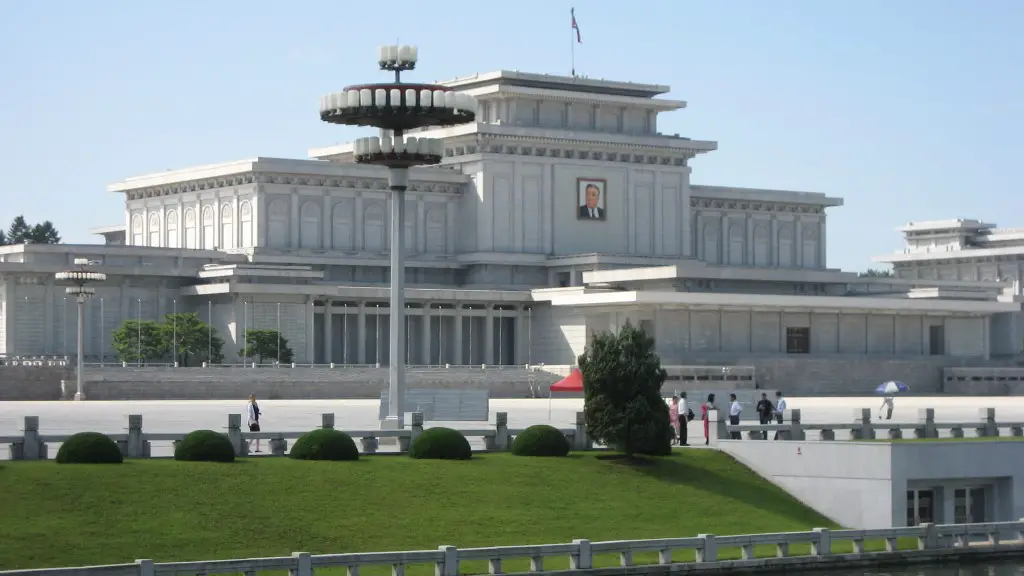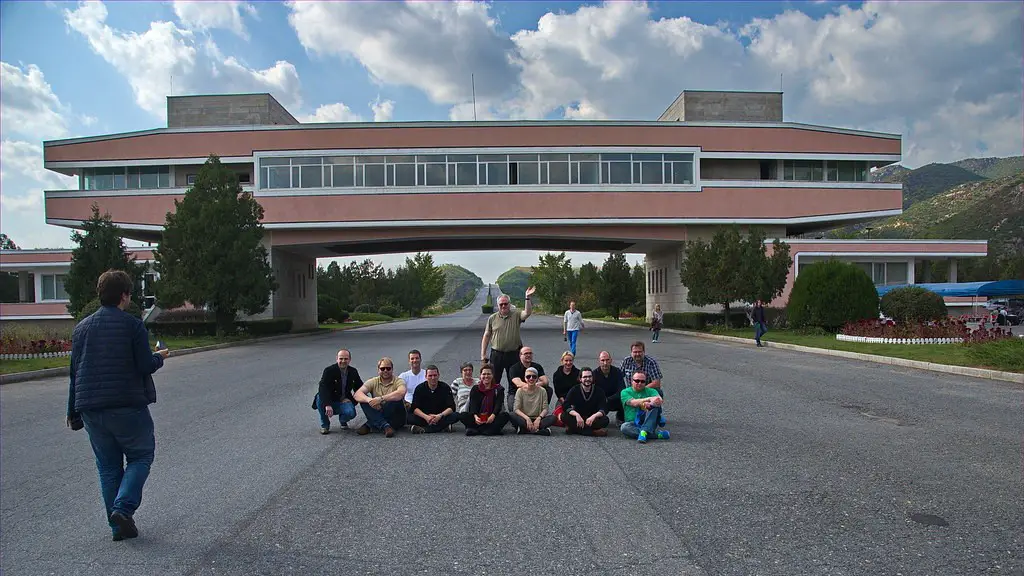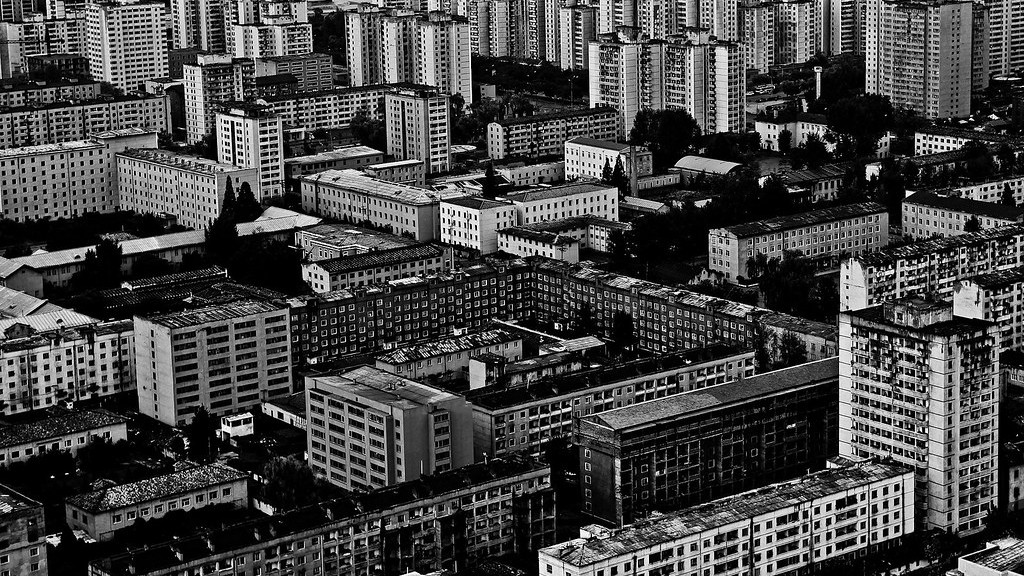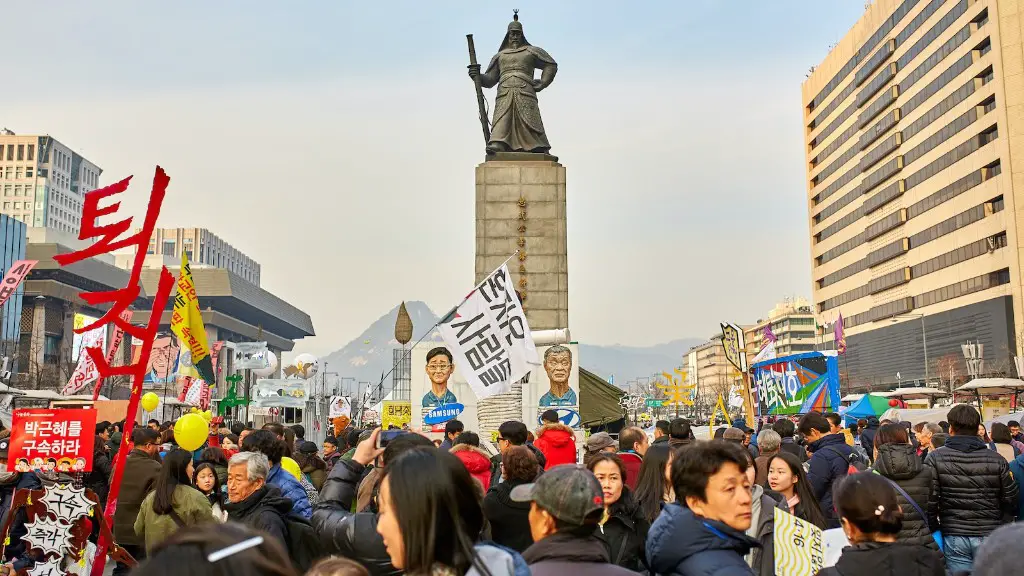There have been many speculations about the death of the North Korean leader, Kim Jong Un, in recent weeks. Reports of his death have been circulating across global media and social media outlets, sparking debates and fueling wild conspiracies. Speculations about the North Korean President continue to mount, with almost as many rumors as there are facts.
Kim Jong Un has been missing from the public eye since mid-April. He failed to attend the birthday celebration of the founder of North Korea, Kim Il Sung, on April 15. The last time he was confirmed to be in public was on April 11th for a meeting of the ruling Workers’ Party of Korea.
The North Korean government has not commented on the nation’s leader’s whereabouts, sparking media attention and speculation from North Korea experts and international leaders alike. Kim Jong Un’s exact whereabouts remain unknown, and his silence has only more heavily shrouded North Korea in uncertainty. Despite this, North Korea analysts and media reports have strongly suggested that Kim Jong Un is still alive.
To start, Korean Central Television (KCTV), the national broadcasting station in North Korea, has continued to broadcast news about Kim Jong Un in his absence. This is significant because the KCTV usually cuts and stops airing news about the leader whenever he is out of view for an extended period of time. In addition, South Korean intelligence officials reported that they have spotted Kim Jong Un at one of his residences in the Wonsan area a few days ago, further supporting the theory that he is still alive.
“We believe that Chairman Kim is alive and well,” declared South Korean unifications minister, Kim Yeon-Chul. “He has been staying in the Wonsan area since April 13. No suspicious movements have so far been detected.” This statement was supported by North Korean news reports that Kim Jong Un had recently sent a number of greetings to officials in the Korean Workers’ Party and had the decision to provide emergency food aid for citizens in the northern part of North Korea.
The United States has also joined the fray in verifying Kim Jong Un’s current state. “Ultimately it is his regime that expresses the best sense of what has occurred,” declared White House spokeswoman Kayleigh McEnany. “We are monitoring these reports closely. We are obviously in close contact with our allies South Korea.” US intelligence services have confirmed that they have collected no evidence that suggests Kim Jong Un is dead.
In conclusion, while Kim Jong Un’s exact whereabouts remain uncertain and reports of his death circulating, evidence that points towards him being alive is much stronger and provides a much more reasonable explanation as to why there is a lack of information in his absence. Until further updates are released or there is some form of conclusive evidence, it can be reasonably assumed that the President of North Korea is still alive at this point in time.
Kim Jong Un’s Rule and Leadership Style
Kim Jong Un is the current leader of North Korea, having assumed the position of Supreme Leader following the death of his father, Kim Jong Il, in 2011. Since then, he has been very active in the North Korean government, and has been credited with furthering the economy, modernizing the military, and developing relationships with other countries for trade and diplomacy.
Kim Jong Un is thought to have implemented a policy making style characterized by experimentation and trial-and-error. He encourages North Korea’s officials to take initiatives and launch experiments in the hope of bringing economic prosperity and self-empowerment to underprivileged people. This peeks of spontaneity and willingness to try new things has eventually led to improved agricultural production and trade relations, despite the lack of resources.
Kim Jong Un has made vast changes to how the government is run, as well as its relationship to the world. He’s opened dialogues with both South Korea and the United States, and has made attempts at opening up trade relationships with other countries. His rule has been good for the North Korean economy, despite the sanctions, and he’s taken measures to improve his country’s infrastructure and technological capabilities.
Despite his successes, Kim Jong Un is also reviled by many. His brutality towards those who speak against him has been well-documented, and his government has been called oppressive and considered uncaring to its people. His reign has faced much scrutiny from the international community and human rights organizations.
Impact of Kim Jong Un’s Absence
The absence of the North Korean president has had an effect on the country, both domestically and internationally. Locally, the lack of information is leading to a sense of uncertainty. Reports of the leader’s health have already had an impact on the local stock market and currency exchange, leading to a significant decline in value. This is an indication of a decrease in consumer confidence, as many are unsure of what will happen next.
Internationally, the uncertainty of Kim Jong Un’s current state has caused tensions to rise among certain countries, including South Korea and the United States. South Korea is particularly concerned, as their relationship with North Korea has been warming over recent years. The country has even called for more transparency from the North Korean government in terms of their leader’s condition.
The United States is similarly concerned, though Trump has remained confident in his foreign policy with North Korea. The President has argued that his handling of the situation has been “excellent”, and has downplayed speculation of tensions between the two countries. However, analysts and experts have pointed to the possibility of further complications in the relationship between the US and North Korea if Kim Jong Un is unable or unwilling to maintain amicable ties.
Potential Fallout of Kim Jong Un’s Death
If Kim Jong Un were to pass away, it could have a massive impact on North Korea, as well as its relations with other nations. Without a successor, the potential for a power struggle, or even civil war, is very real. North Korea’s government is highly centralized and controlled by the leadership, and, if Kim Jong Un were to pass away without his replacement in place, the country could fall into disarray.
The international impact of Kim Jong Un’s death would also be far reaching, upsetting the strategic balance in East Asia and potentially increasing tensions between North Korea and its neighbors. Dependent on the situation, it may lead to further economic sanctions, international intervention, or military conflict. Given the long history of distrust in the region, none of these outcomes can be predicted with accuracy.
Several countries, most notably the US and South Korea, could also use Kim Jong Un’s death as an opportunity to improve ties with North Korea and influence the region. South Korea already has a plan to build a stronger relationship with the North through their New Economic Map policy, which focuses on economic cooperation and the free flow of goods. It is unclear if the US has any similar plans in the event of Kim Jong Un’s death, but the possibility remains.
Response From Other Nations
In response to the rumors about Kim Jong Un’s fate, other regional powers have issued statements about the issue. Japan, another neighbor of North Korea, has been vocal in its support for the leader and its hope that he is alive. Japan’s Prime Minister, Shinzō Abe, has argued that he understands the North Korean government’s strategy of not releasing information about Kim Jong Un’s whereabouts and stated his belief that “there is no change in their basic policy.”
China, historically an ally of North Korea, has also issued a statement of support. A spokesperson from China’s Foreign Ministry said, “We hope the relevant parties can remain calm and exercised restraint, and avoid taking actions that may further escalate tension in the region.” This statement suggests that China is doing what it can to protect the stability of the region. However, they did not confirm or deny any specific reports or rumors.
Russia, a close partner of both North and South Korea, tried to emphasize the importance of de-escalation in the situation. A Kremlin spokesperson urged restraint, saying “We think that this is exactly why we should be very careful about approaching this topic with any rumors or unverified data.” Russia has also offered its support to North Korea in this difficult time, out of a desire to maintain peace and stability.
Analysis and Reactions of the Public
People around the world have been divided in their reactions to the news of Kim Jong Un’s disappearance. Some consider his silence to be worrying and have called for more information from North Korea’s government, while others seem content to take the leadership at their word. The general sentiment on this matter has been one of confusion and speculation.
Political analysts have weighed in on the matter, with some predicting destabilization in the region if the rumors were true, while others warned that it could be seen as an opportunity for intervention by other powers. Many experts have also argued that this could be a sign of a power struggle within North Korea, though the truth of this is impossible to know at the moment.
In the meanwhile, media outlets have been reporting on Kim Jong Un’s health, and wild conspiracies have abounded in the form of both supportive and anti-Kim Jong Un rallies. In South Korea, citizens have held up signs in protest of the North Korea leader, while in other parts of the world, small rallies have been held to show support for the leader. It remains to be seen how the situation will unfold.
